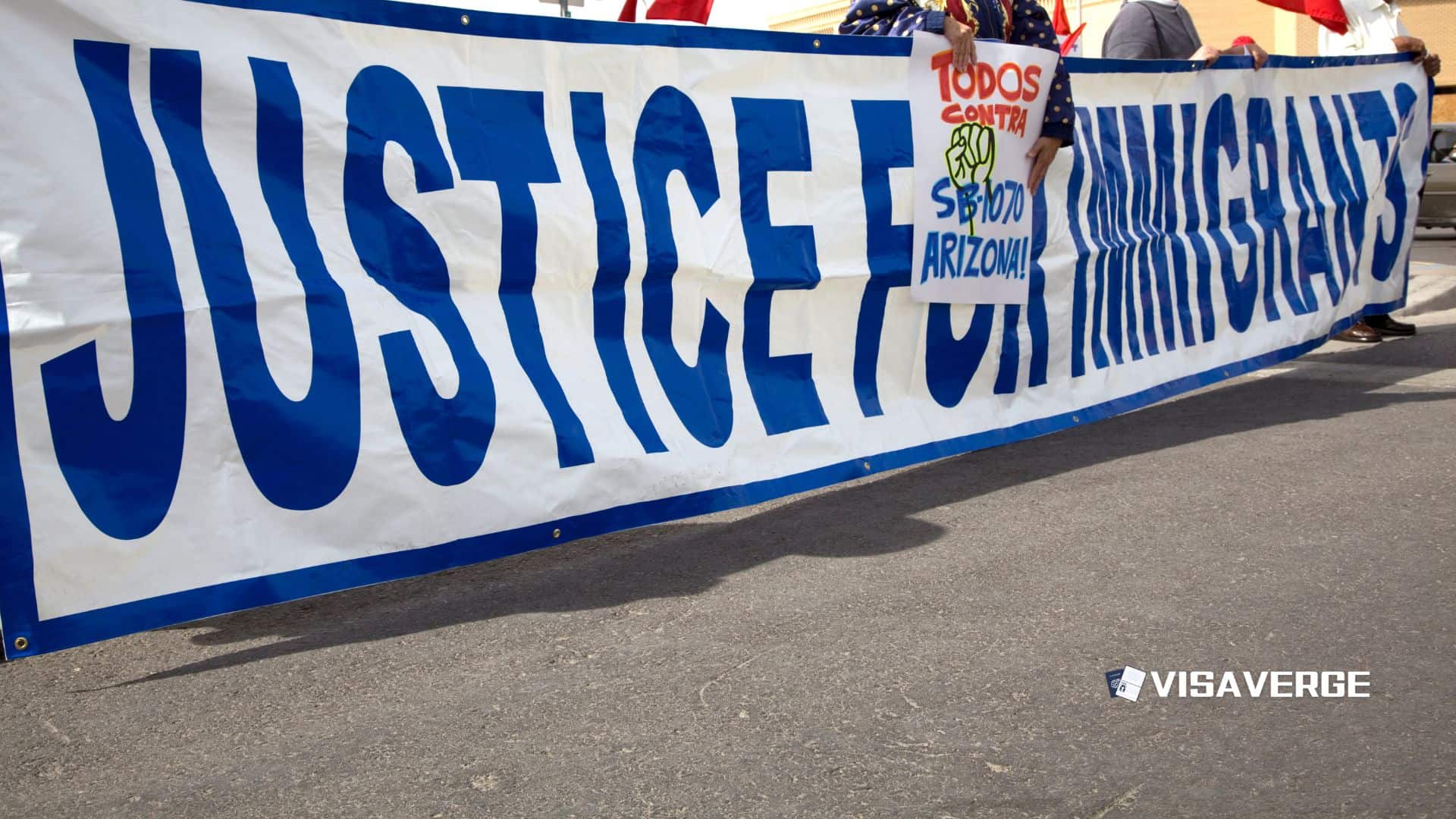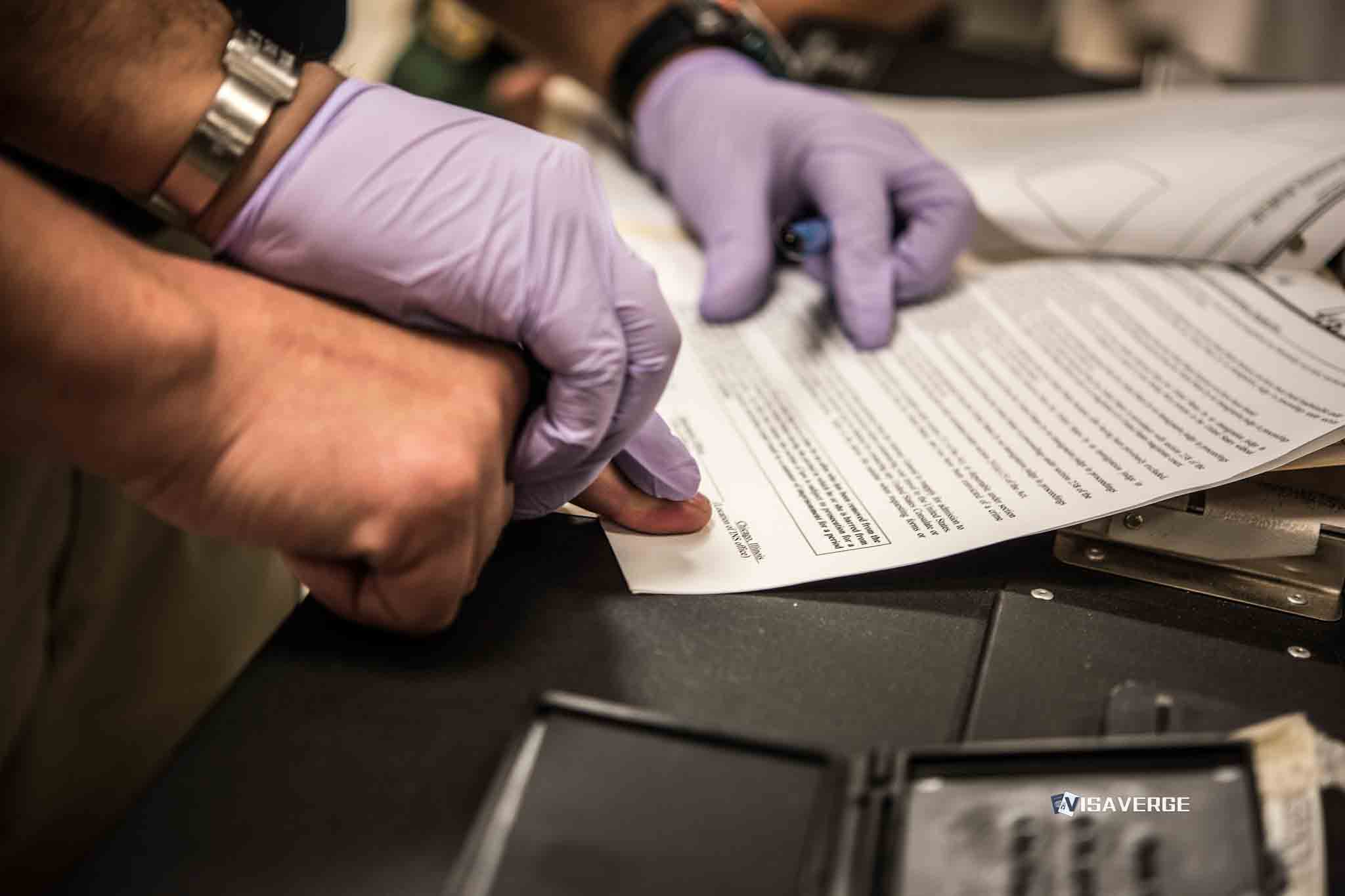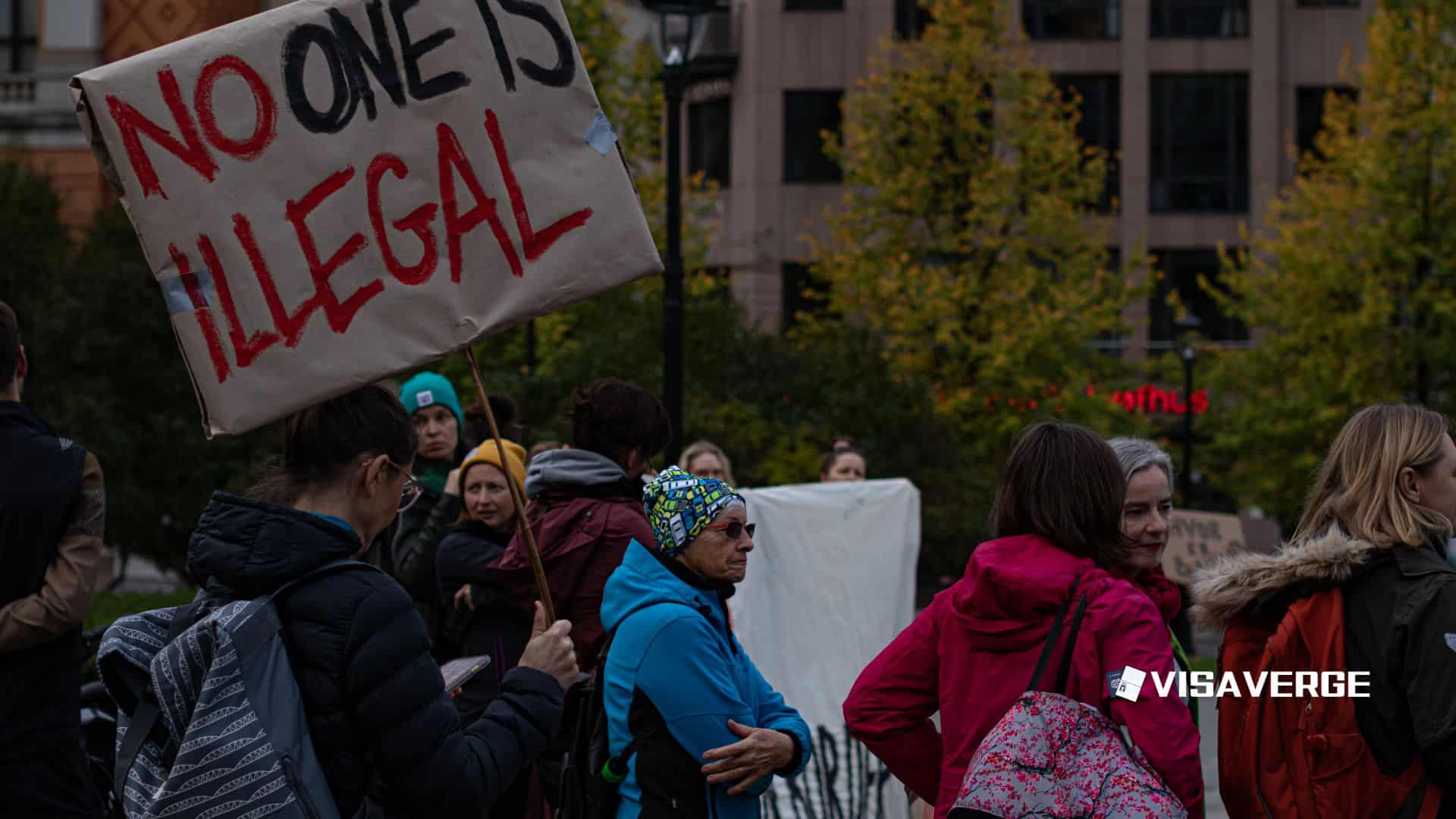Key Takeaways
• President Trump admitted immigration enforcement harms farmers by removing key experienced workers as of June 12, 2025.
• Recent ICE raids displaced many undocumented farmworkers, causing labor shortages and economic disruption in agriculture and hospitality.
• No new official policy or visa program announced despite promises of change; uncertainty affects employers and workers.
On June 12, 2025, President Donald Trump made a public statement that has sent ripples through the agricultural and hospitality industries across the United States 🇺🇸. Speaking on his social media platform, Truth Social, President Trump admitted that his administration’s tough immigration enforcement policies are hurting farmers and businesses by removing “very good, long-time workers” who are “almost impossible to replace.” He promised, “Changes are coming!” but did not explain what those changes would be or when they might happen.
This announcement comes after a week of highly publicized immigration enforcement actions, including Immigration and Customs Enforcement (ICE) raids targeting farmworkers in California. These actions have led to widespread fear and disruption in agricultural communities, leaving many farmers and business owners anxious about the future of their workforce. As of now, there has been no official policy change, executive order, or new process announced to address these concerns.

Below, we break down what’s happening, why it matters, and what it could mean for farmers, workers, and the broader U.S. economy.
Trump’s Immigration Enforcement and Its Impact on Farmers
President Donald Trump’s administration has taken a hardline approach to immigration enforcement since returning to office. The focus has been on mass deportations and increased workplace raids, especially in industries that rely heavily on immigrant labor, such as agriculture and hospitality. According to analysis from VisaVerge.com, these policies have created significant challenges for both employers and workers.
Key Points:
– ICE Raids: Recent ICE operations have targeted farms and food processing plants, leading to the detention and deportation of many undocumented workers.
– Labor Shortages: Farmers report that it is becoming harder to find enough workers to plant, tend, and harvest crops. Many say that the workers being removed are experienced and have been with them for years.
– Economic Disruption: The loss of workers has led to unharvested crops, reduced productivity, and financial losses for farmers. The hospitality industry is also struggling to fill positions.
President Trump’s admission that these policies are causing problems for farmers is significant. It marks a rare acknowledgment from the administration that the crackdown on undocumented immigrants is having negative side effects on the economy.
No Clear Policy Changes—Just Promises
Despite President Trump’s promise that “changes are coming,” there has been no official announcement of new policies or procedures. The White House press office has not responded to requests for details, and the Department of Homeland Security (DHS) has only said that it will continue to focus on removing “the worst of the worst criminal illegal aliens.”
What’s Missing:
– No Executive Order or Memorandum: As of June 12, 2025, there is no new executive order or official guidance that would change the current approach to immigration enforcement.
– No New Visa Program: There has been no announcement of a new visa program or legal pathway for undocumented farmworkers.
– No Formal Process for Relief: In April 2025, President Trump suggested that farmers could submit letters on behalf of specific workers to slow down deportations, but no formal process or instructions have been provided.
This lack of clarity has left farmers, workers, and business owners in a state of uncertainty. Many are unsure whether they can keep their current workers or if more raids and deportations are on the way.
The Numbers: How Many Farmworkers Are Affected?
The U.S. agricultural sector depends heavily on immigrant labor. Historical data suggests that at least 50% of farmworkers are undocumented immigrants. With an estimated 11 million undocumented immigrants living in the United States 🇺🇸, a large portion work in agriculture and hospitality.
Recent Trends:
– Increased Workplace Raids: ICE has stepped up enforcement in recent months, targeting farms, food processing plants, and hotels.
– Labor Shortages: Farmers and business owners report that it is becoming harder to find workers willing to do physically demanding jobs for low pay.
– Economic Impact: Businesses in rural areas are seeing a decline in consumer spending, especially among Hispanic customers who fear enforcement actions.
Eric Rodriguez from UnidosUS, a major Hispanic advocacy group, noted that many Hispanic families are cutting back on spending and preparing for the possibility of losing income if a family member is deported.
Farmers’ Frustration and the Search for Solutions
Farmers and industry groups have been lobbying the Trump administration for relief. They argue that the current immigration enforcement policies are making it nearly impossible to run their businesses.
Common Concerns:
– Losing Skilled Workers: Many farmworkers have years of experience and are essential to the success of the farm.
– No Replacement Workers: Farmers say that few Americans are willing to take these jobs, even when offered higher pay.
– Uncertainty: Without clear guidance from the government, farmers do not know how to plan for the future.
Some farmers have tried to follow President Trump’s earlier suggestion to submit letters on behalf of their workers, but there is no official process or guarantee that this will help. No new visa category or legal status has been created for these workers.
The Role of the H-2A Visa Program
The H-2A visa program allows U.S. employers to bring foreign nationals to the United States 🇺🇸 to fill temporary agricultural jobs. However, many farmers say that the program is too complicated, expensive, and slow to meet their needs.
Key Facts About H-2A:
– Temporary Only: The visa is only for seasonal or temporary agricultural work.
– Complex Application Process: Employers must prove that they cannot find U.S. workers and must provide housing and transportation for H-2A workers.
– Not Enough Workers: The program does not supply enough workers to meet the demand in agriculture.
For more information about the H-2A visa program, visit the official USCIS H-2A Temporary Agricultural Workers page.
Economic and Social Effects
The impact of the Trump administration’s immigration enforcement goes beyond the fields and farms. It is affecting the entire rural economy and the lives of millions of people.
Economic Effects:
– Unharvested Crops: Some farmers are leaving crops in the field because they do not have enough workers to pick them.
– Higher Prices: Reduced supply of fruits and vegetables could lead to higher prices for consumers.
– Business Closures: Some small farms and businesses may be forced to close if they cannot find enough workers.
Social Effects:
– Fear and Anxiety: Immigrant families are living in fear of raids and deportations.
– Community Disruption: Schools, churches, and local businesses are feeling the effects as families leave or stop participating in community life.
– Reduced Spending: Hispanic families are spending less, which hurts local businesses.
What Are Stakeholders Saying?
Farmers and Business Owners: Many are frustrated and worried. They say they need a stable, legal workforce and want clear rules from the government. Some have spoken out publicly, while others fear drawing attention to themselves.
Immigrant Advocates: Groups like UnidosUS and United Farm Workers condemn the ongoing raids and deportations. They highlight the human cost—families separated, children left behind, and communities torn apart.
Administration Officials: DHS spokesperson Tricia McLaughlin has said that the focus is on removing “the worst of the worst criminal illegal aliens.” However, the lack of clear policy direction has left many wondering how this will be balanced with the needs of the economy.
Why Is There So Much Uncertainty?
The main reason for the current confusion is the lack of clear, official guidance from the Trump administration. President Trump’s statements have been vague, and no new policies have been announced.
What We Know:
– No New Laws or Programs: Congress has not passed any new laws to address the labor needs of farmers.
– No Executive Action: The White House has not issued any new executive orders or memoranda.
– No Formal Process: There is no official way for farmers to request relief for their workers.
As a result, everyone is left waiting for more information. Farmers do not know if they should expect relief or more enforcement. Workers do not know if they will be allowed to stay or if they will be deported.
Historical Background: How Did We Get Here?
President Donald Trump’s approach to immigration has been shaped by a focus on enforcement over reform. Since 2017, his policies have included:
– Ending DACA: Attempting to end protections for young undocumented immigrants brought to the U.S. as children.
– Restricting Asylum: Making it harder for people to seek asylum in the United States 🇺🇸.
– Increasing Workplace Raids: Targeting employers who hire undocumented workers.
– Mass Deportations: Pushing for the removal of as many undocumented immigrants as possible.
Previous efforts to create a legal pathway for farmworkers, such as expanding the H-2A visa program or creating a new visa category, have stalled in Congress. The administration’s approach has been influenced by hardline advisors and a desire to show toughness on immigration.
What Could Happen Next?
At this point, it is unclear what changes, if any, President Trump will make to his immigration enforcement policies. The lack of details suggests that any shift will likely be small and may only apply to certain cases rather than creating a broad new program.
Possible Scenarios:
– Case-by-Case Relief: The administration might quietly allow some workers to stay if their employers make a strong case, but without a formal process, this would be unpredictable.
– No Change: The administration could continue with its current enforcement-first approach, despite the negative effects on farmers and businesses.
– Future Announcements: As political pressure grows from affected industries, there may be further statements or clarifications in the coming weeks.
Industry groups and immigrant advocates are expected to keep pushing for concrete relief, but as of now, the administration’s main focus remains on enforcement.
What Should Farmers and Workers Do Now?
Given the current uncertainty, here are some practical steps for those affected:
- Stay Informed: Follow updates from the White House, DHS, and trusted news sources for any changes in policy.
- Know Your Rights: Workers should be aware of their rights during ICE raids and seek legal advice if needed.
- Contact Industry Groups: Farmers can reach out to organizations like the American Farm Bureau Federation or the National Council of Agricultural Employers for support and advocacy.
- Explore Legal Options: Employers and workers can review existing visa programs, such as the H-2A visa, to see if they qualify.
For official information on immigration enforcement and worker rights, visit the Department of Homeland Security’s Immigration Enforcement page.
Conclusion: Waiting for Clarity
Despite President Donald Trump’s recent promise that “changes are coming” to immigration enforcement, there have been no concrete policy changes or new procedures announced as of June 12, 2025. Farmers and business owners continue to face labor shortages and economic disruption, while immigrant workers and their families live with fear and uncertainty. The administration’s enforcement-first approach remains in place, and stakeholders across the country are left waiting for further clarification or action.
As reported by VisaVerge.com, the situation remains fluid, and all eyes are on the White House and DHS for any sign of relief or new direction. Until then, the future of America’s farms—and the workers who keep them running—hangs in the balance.
Learn Today
ICE raids → Operations by Immigration and Customs Enforcement targeting undocumented workers for detention and deportation.
H-2A visa → A temporary visa allowing employers to hire foreign agricultural workers for seasonal jobs in the U.S.
Deportation → The forced removal of a foreign national from the country for violating immigration laws.
Undocumented immigrant → A person living in a country without legal authorization or valid immigration status.
Executive order → A directive issued by the president that manages operations of the federal government and immigration policies.
This Article in a Nutshell
President Trump acknowledges immigration enforcement damages the U.S. agricultural sector by deporting skilled workers. Despite promises, no new policies or visa programs have been announced. ICE raids are creating labor shortages and economic strain. Farmers remain uncertain about future relief, while the administration focuses on deporting criminal illegal aliens, deepening workforce fears.
— By VisaVerge.com












